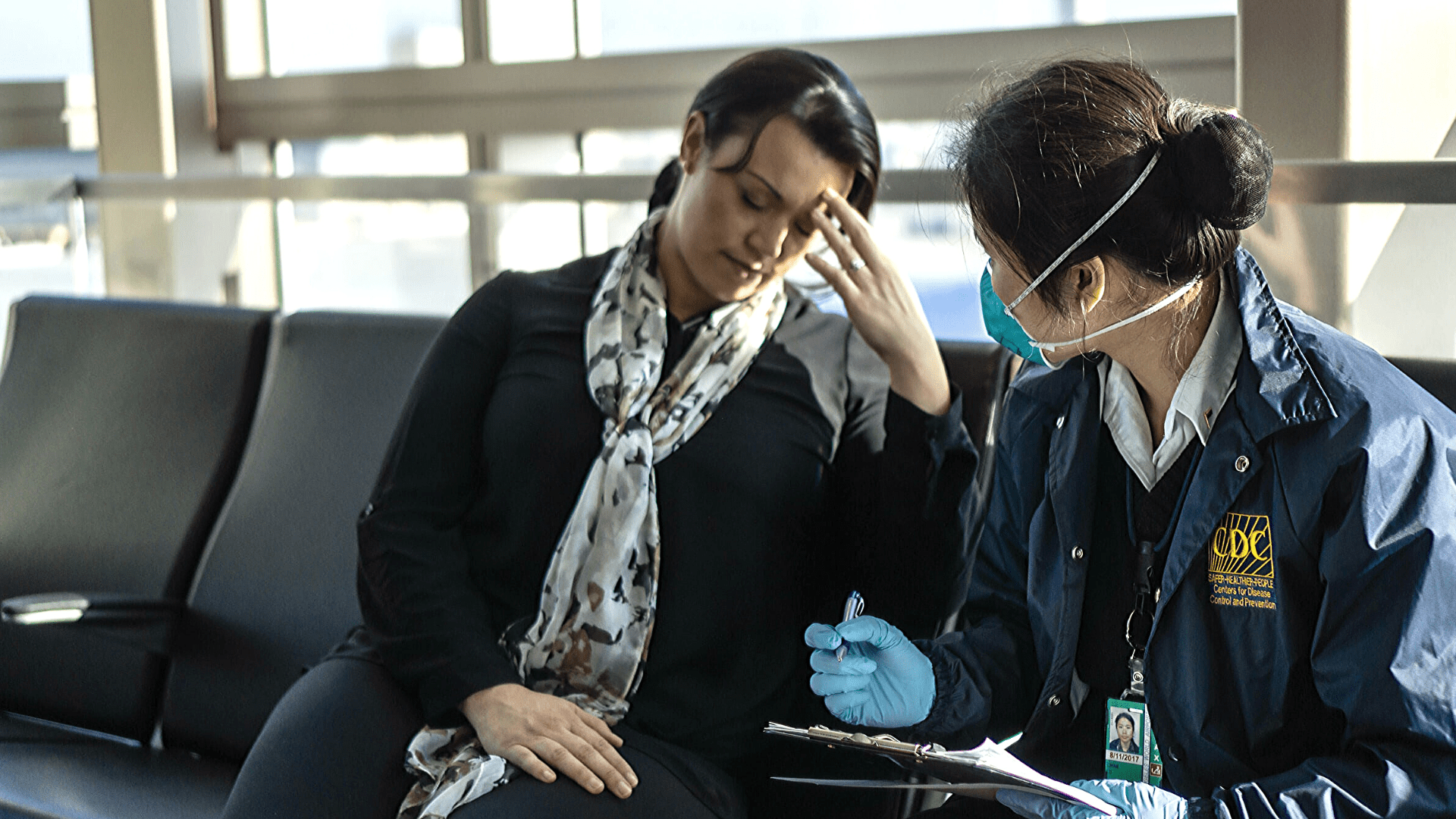Living as Christians in a Time of Pandemic
The God Who Loves Us
Christians  believe that God rules with love, justice, and gracious care over the humans he created in his image, and all of the created order. The Mennonite Brethren Confession of Faith (CoF) begins with this statement: “We believe in the one, true, living God, Creator of heaven and earth. God is almighty in power, perfect in wisdom, righteous in judgment, overflowing in steadfast love” (CoF Article 1).
believe that God rules with love, justice, and gracious care over the humans he created in his image, and all of the created order. The Mennonite Brethren Confession of Faith (CoF) begins with this statement: “We believe in the one, true, living God, Creator of heaven and earth. God is almighty in power, perfect in wisdom, righteous in judgment, overflowing in steadfast love” (CoF Article 1).
Compounding the difficulty Christians find in processing these new experiences is the rapid pace of change, as governments and health agencies try to respond to an unfolding situation and safeguard public safety. However, as what started as a health issue spills over into economic and other areas of life, people’s anxiety increases.
Trusting God during Trials
Has something changed? Do the present circumstances indicate a shift in how Christians should view the world and God’s actions in it? Are the present circumstances a sign that God is angry with us, punishing us with a calamity designed to highlight our sinfulness and calling us to repent?
The present situation is difficult. Recent events are compelling most people to give up the routines they are accustomed to living. However, if we who follow Jesus stop to consider our situation in light of what we believe God has led us to confess about God’s role in the world and our response to it, things are less unexpected than they may initially appear.
…we who believe do not need to fear, because with Christ we are overcomers.
Psalm 46:1 reminds us that “God is our refuge and strength, an ever-present help in trouble.” The psalmist continues by reminding us that God’s presence allows us not to fear the calamities that may befall us. What is not promised is that we will be prevented from experiencing problems and trials. Rather, God’s promise is that he will be our source of strength to persevere and endure through them.
Jesus gives words of assurance to his disciples that parallel the comfort of Psalm 46. Speaking about the joy that will eventually come when Christ returns, Jesus tells his followers that “I have told you these things, so that in me you may have peace. In this world you will have trouble. But take heart! I have overcome the world” (John 16:33). It is for this reason that we who believe do not need to fear, because with Christ we are overcomers.
The promise of God to his people is that although there will be hard times, God will accompany his people through the hard times and sustain them. God has not changed. God still loves, still rules justly, still bestows grace. Pain does not change that. In all things, God remains “the Sovereign who rules over all things visible and invisible, the Shepherd who rescues the lost and helpless. God is a refuge and fortress for those in need” (CoF Article 1).
What Do Trials Mean?
If God remains the same and is just, is the present turmoil a sign of his displeasure or punishment? Especially because trials are coming to godly people as well as ungodly people, and in light of the recognition of troubles in this life, it does not seem that God is bringing disease simply as a result of human sin. However, this may nevertheless be an appropriate occasion for self-examination. Christians have abundant reasons to cultivate a spirit of humility and repentance before God.
God’s gracious blessings are gifts that we who are Christians ought not to take for granted. Furthermore, it is possible that difficulty should serve to remind us how much we have received from God and motivate us to give thanks in response. We ought not to consider blessing as normal or to think that trials invite us to simply pray them away. Grace is God’s favour, given freely in spite of our sinfulness. Good times should be accepted with gratitude and treasured as gifts from God. God’s purposes, even through difficulty, may bring unexpected results, visible only in hindsight, that accomplish much for the building of his Kingdom.
What, then, ought we to do when trials such as this come? The answer lies in thinking about God’s steadfastness. God is consistently good. This should be instructive for us. The path through suffering encourages us to focus our attention on Christ. When we shift our gaze to our suffering, taking our eyes off Christ, suffering becomes a distraction that hinders our discipleship. The call to live as followers of Jesus Christ and to make disciples remains, despite the clamour around us.
Focusing on Christ During Trials
As believers, we are called to be the body of Christ and to participate in the mission of God in the world as much now as at any other time. This call stays the same. The particular ways we live out and express that calling may change. But we are called to live, serve, speak, and give as much now as ever. Viruses and economic problems do not absolve us of our call to live faithfully and actively. Alongside our call to prayer there needs to be a call to action. Local, provincial, and federal governments are circulating action plans. What is ours as a Mennonite Brethren family?
Lament is a form of worship in which we demonstrate that we are relying on God to be “big enough” to be able to deal with our complaints and cries of pain.
In all of this, we are to be people of prayer. Prayer does at least three things. One is to reorient us in relation to God. Prayer is first and foremost an act of worship. In our worship, as we see in the Psalms, we voice both praise and lament. Praise belongs to God because of who God is. But lament is also appropriate because God is just and loving, and is attentive to the cries of his people. Lament is a form of worship in which we demonstrate that we are relying on God to be “big enough” to be able to deal with our complaints and cries of pain.
Second, prayer orients us towards God’s people—as individuals and as communities. It settles our hearts and brings us together in fellowship. Prayers of intercession, encouragement, and blessing remind us that we are not solitary believers. We are members of one body with one heavenly Father.
Third, prayer evokes in us a missional impulse that orients us toward the contextual application of our missional imperative. We pray for opportunities to serve God’s mission in word and deed. In times of trial, the measures we embrace may be particularly noteworthy to a watching world.
We may also pray for deliverance and God’s miraculous intervention in the present circumstance; but we need to remember that such intervention will happen if it serves God’s purpose, not because it serves our hope to return to what we perceive as “normal.”
Living Missionally During Trials
The work of Christians does not change in times of trial. It becomes more important.
In the end, the work of the church is to continue to be the church. Risks to personal safety should be acknowledged, but they do not dictate the highest motivation for our actions. Jesus’ call to discipleship in Luke 14 reminds us that we should have our eyes open, taking very seriously the risks that accompany being followers of Christ.
In 1527, Martin Luther wrote a letter to a fellow pastor about what to do when the plague strikes one’s city. Luther’s advice is clear-headed and soundly missional. Do not flee from risk. Do your job. Use medicine. If you are sick, keep away from others. Most of all – remain steadfast. The work of Christians does not change in times of trial. It becomes more important. Luther was not writing hypothetically; he remained in Wittenberg when the plague struck, against the advice of his friends. He showed that Christians are called to continue to serve others in the role in which God has placed us.
Doing the work Christians are called to do during times of trial is not easy. Proportional giving to church ministries seems impossible during periods of income instability. Serving one another in person seems unwise in light of the potential transmission of disease. But what does trust in God’s faithfulness mean if it does not translate into our willingness, as disciples, to continue to act on our missional mandate? A crisis offers those in every vocation an opportunity to reaffirm their calling and to find new ways of living into it. Luther’s words are particularly instructive. “Whoever will not help or support another person unless they can do it without affecting their safety or property will never help their neighbour.” Love for neighbour is most evident not when expressions of love are easy, but when they are difficult.
May God find us faithful.
[MB Seminary’s faculty worked together to develop this theological response to the COVID-19 pandemic.




September 1, 2020 @ 2:49 pm
Our small group would like to use your article “Living As Christians in Time of Pandemic” to start our meeting this fall. I wonder if there is a print version I can use so that each of us could have a copy. Thank you for continuing to provide excellent guidance during a time of fear and crisis for many.
October 1, 2020 @ 7:59 am
Thanks for asking, Kandy. Yes, I can provide you with a print-ready version of this post.
October 3, 2021 @ 7:45 am
Do you believe and support the vaccine?
November 29, 2021 @ 2:39 pm
Hi Maryellen,
Thank you for your comment. The National Faith and Life Team is currently working on a resource document that provides a biblical-theological foundation and practical guidance for MB leaders and churches regarding the questions you have asked. This should be made available on the Mennonite Brethren website once it has been released.